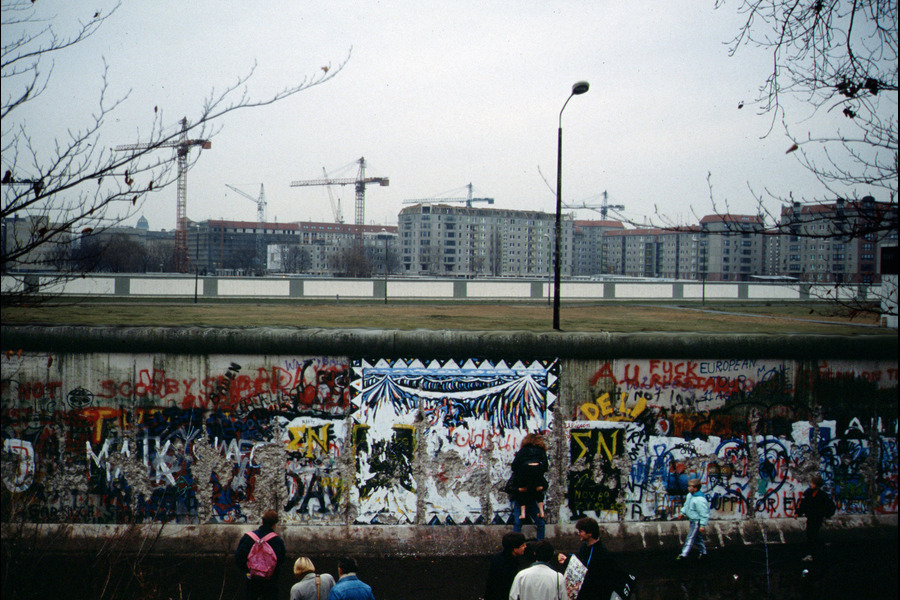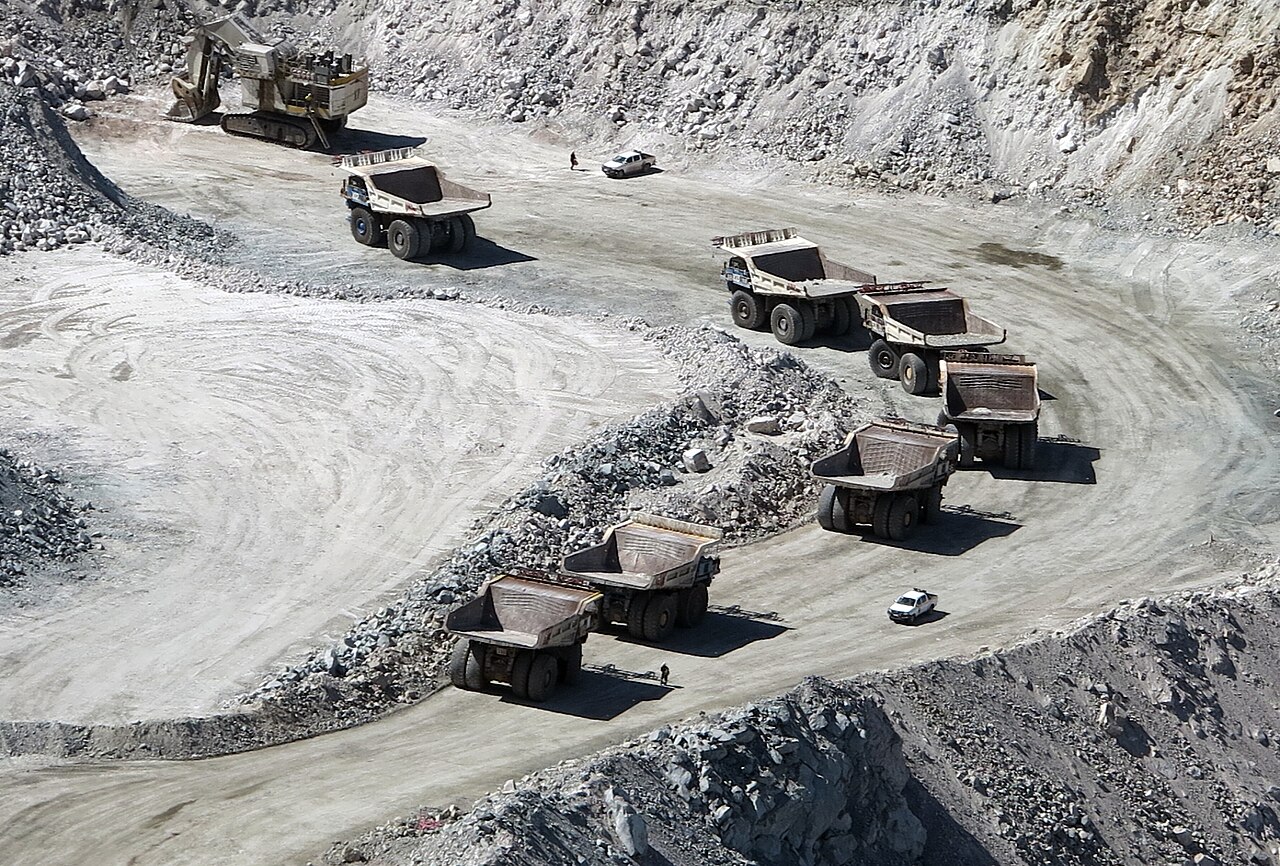Hot Commodities: Let’s Make a Deal—Oil Edition
Following months of speculation, Saudi Arabia, Russia, Qatar, and Venezuela last week announced their intention to freeze oil production at existing (high) levels in an attempt to stabilize the oil market.
Published by The Lawfare Institute
in Cooperation With

Following months of speculation, Saudi Arabia, Russia, Qatar, and Venezuela last week announced their intention to freeze oil production at existing (high) levels in an attempt to stabilize the oil market. However, not only did the four announce the agreement amid historically low oil prices, oversupply and high storage levels, they also did so without the agreement of other OPEC members and global producers. Iran, for its part, called the proposal “laughable.”
It is certainly clear that all the parties to this agreement—if the tentative announcement of intentions to freeze production should others also agree can even be deemed an “agreement”—are in varying degrees of dire circumstances thanks to falling revenue. But it is also clear that the announcement is unlikely to improve their circumstances, particularly following the comments of Saudi oil minister Ali al-Naimi unambiguously ruling out production cuts at an international energy conference this week.
Speaking at CERA week in Houston, al-Naimi said a cut in production, the only likely panacea to rock bottom prices, “is not going to happen.” According to the Financial Times, Naimi cited the lack of trust among OPEC producers as a hindrance to any agreement, saying “Even if they say they will cut production, they will not deliver.”
What does this mean? According to Keith Johnson in Foreign Policy, oil producers should batten down the hatches for continued rough sailing.
For an in-depth analysis of the deal, or what author Martin Vlcek calls a mere “token of goodwill,” Seeking Alpha has more. Politico brings the consequences of the oil crash straight to you from the experts, and European Energy Review has the prognosis on who will be left standing when curtain closes on this “financial cold war.” Meanwhile the New York Times covers what this means for young Saudis in search of employment opportunities. In short? This isn’t your parents Saudi Arabia anymore.
Historic or History Repeating
For some producers, falling revenue isn’t their only problem. Warning in Foreign Policy that Nigeria is “coming apart at the seams,” Max Siollun points to oil as “an incentive for unity as well as disintegration.”
In Nigeria, oil is both the source of grievance, motivating separatists in the Niger Delta to agitate for increased autonomy, and a source of confidence that they possess the tools of economic independence. Oil also is a motivating factor for the Nigerian government to retain an ever tighter grip on resource rich regions.
This tension has become more tangible in 2016, as attacks on pipelines have increased. The Agip pipeline was bombed in January, resulting in the loss of thousands of barrels of oil and the contamination of waterways and fishing areas. The Nigerian National Petroleum Company (NNPC) was also forced to shut down two refineries after additional pipelines were attacked. The government claims separatists from the Movement of the Emancipation of the Niger Delta (MEND) are behind the attacks, and President Buhari has responded by announcing he intends to send military forces to the region to stop the sabotage of oil facilities.
Feel like you’ve read this story before? Back in 2009, groups in the Niger Delta, including MEND, mounted an insurgency against the Nigerian central government, and their demands included a larger share in the Delta’s oil revenue. Their tactics included attacks on oil infrastructure and a spate of high-profile kidnapping of foreign oil company employees. After an amnesty agreement between the central government and militants in 2009 ushered in seven years of relative peace, attacks on oil infrastructure are once again on the rise.
The oil sector is not only the target of physical attack, but the focus of criticism and accusation as well. With low oil prices hampering the Nigerian economy, perceptions of corruption and mismanagement are feeding public discontent. However, the NNPC is attempting to clean up its reputation (if not its act), starting with the publication of financial reports.
Seems like baby steps? According to the Financial Times, this is the first time the NNPC has made public reports on profits, losses, and spending in over a decade.
Crossing the Ruble-Con
Nigeria isn’t the only one in search of a bit of good news.
In Russia, the Financial Times reports that the dual impact of sanctions and low oil prices has resulted in declining trade with eastern European (and largely former Soviet) states. The financial doldrums are reportedly so dire that President Putin is considering privatizing the very firms he once worked to bring back under state control. Some are even going as far to assert that the intersection of low energy prices, economically disastrous overseas entanglements, and sanctions could mean “Lights Out for the Putin Regime.”
When it comes to its European neighbors, Russia is also increasingly under fire in what Politico calls the “Great Northern Gas War” over Nord Stream II. The proposed pipeline expansion project would increase the gas export capacity from Russia to Germany, deepening the relationship between Gazprom and its most valuable European market and enabling a move away from gas transit options through Ukraine.
The proposal has caused concern among some central and eastern European countries, who have objected that this is not what they meant when they signed up for solidarity. Rising tensions and tempers over Nord Stream II have taken center stage amid the release of the European Commission’s new energy security proposals, also referred to as the winter package, to strengthen the Energy Union.
Some maintain the proposals, which coincide with the Energy Union’s first birthday, are another step in the overall effort to diversify European energy supplies and integrate European energy markets. Others argue they are thinly disguised anti-Russia policies designed to use legal means to achieve geopolitical ends.
Similarly, while Politico says the conflict over Nord Stream is “shaping up as a classic Cold War drama over energy instead of armies,” others, including the German government, argue the proposed pipeline expansion is purely a business issue (including Vice Chancellor Sigmar Gabriel during his controversial trip to Moscow).
Whether commercial maneuvering or geopolitical wrangling, the focus on Russia’s energy relationship with the EU is likely to continue as both the debate over the energy union—as well as bigger questions over the future of the European Union—loom large.
Want to decide for yourself if the proposals are anti-Russian or pro-integration? Check out the proposal on Gas Supply, Intergovernmental Agreements, LNG and Gas Storage, and Heating and Cooling. However, if you prefer more analysis (and less Commission speak) Brussels-based FTI consulting in Brussels takes a closer look at the proposal.
What to Watch:
Eurasian (Ad)ventures
Europe isn’t the only place where Russia’s influence is being closely watched. Eurasia could be the new collision course for, what Robert Kaplan writing in Foreign Affairs calls, Russian and Chinese growing weakness.
According to Kaplan, the deteriorating economic conditions in China and Russia point to the possibility that both countries might use adventures abroad to distract from conditions at home. And while article is typical Kaplan, he does have a point when it comes to influence in Eurasia, which lies at the crossroads between Russia and China.
Indeed, Putin, seeking not only adventure but influence and revenue, may become even more influential and invested in the consolidation of the thus far fragile Eurasian Economic Union. Meanwhile, Beijing may try to turn the economic downturn at home into an opportunity to promote and focus attention on its New Silk Road project abroad—treading on traditional Russian sphere of influence and geopolitical hot spots in Central Asia. From pipelines to electric pylons, the intersection of European, Russian, and Chinese interests in Eurasia could lead to fragmentation at best and geopolitical conflict at worst.
Jockeying for influence between Russia and China could take on additional significance amid perceived cracks in the edifice of long standing authoritarian regimes in the region. While the downfall of any of these regimes is far from certain, Carnegie called Kazakhstan “stable but tense” on its 25th birthday, with an economy in a downward spiral thanks to low oil prices and a failure to diversify.
Service with a Smile...in Syria
Russia’s adventures abroad are not limited to its own neighborhood, and neither are the activities of Russian firms. While Russian forces have jumped into the fray with the (stated) intention to fight the Islamic State in Syria, opportunity and conflict can make strange bedfellows. Take, for example, the cooperation of Russian energy firms, Syrian state-owned companies, and the Islamic State to produce electricity—and a profit.
Writing in Foreign Policy, Ceren Kenar and Ragip Soylu report that Russian engineers are working alongside Syrian state employees and in cooperation with the Islamic State to construct and operate the Tuweinan natural gas facility. The power is then pumped to facilities both under the control of the Islamic State as well as those of the Syrian government.
Perhaps all this unseemly cooperation is done for the greater good of electricity provision for the Syrian people? Hardly.
According to the article, Russian company Stroytransgaz and subcontractor Hesco receive a share of the gas and extortion money for their efforts. The money also allegedly runs two ways, as Hesco also pays the terrorist organization for the protection of valuable equipment. The reporting follows initial investigations by the Financial Times last fall (remember the mafia-style gas deals) and an in-depth look by Carnegie last summer.
Water(less) World
Service provision also has taken center stage in a dispute between the Turkish Republic of Northern Cyprus and its patron state Turkey over the Northern Cyprus Water Supply Project.
The project, an undersea pipeline bringing water from southern Turkey to the TRNC, went into operation last October. However, water stopped flowing shortly thereafter thanks to disagreement over who should shoulder the responsibility of managing and distributing the water. While the TRNC favored a public or municipal entity, Ankara demanded a private company do the job.
While an agreement is reportedly in the works this week, water remained cut off during the standoff, illustrating the degree to which the intersection of politics and the provision of essential services can impact public well-being (and perhaps even political stability, as the river of trash in Lebanon illustrates). Furthermore, the disagreement over the pipeline, which the Turkish government calls the peace pipe (a label they should perhaps rethink for various reasons) illustrates how even potential opportunities for cooperation can devolve into conflict on the island.
Tensions over water provision--and the threat of water scarcity--and not limited to Cyprus, nor are they likely to dissipate any time soon. According to the World Economic Forum, global water crises are “the biggest threat facing the planet over the next decade.” According to the Forum’s 2015 Global Risks report, the threat of water crises are both highly probable, and high impact.
The Davos crowd is not the only one taking notice of the water’s importance.
Summarizing the results of a new study in the journal Science Advances, The Guardian reports that the risks and scope of water scarcity are much more severe than previously understood. Not only are four billion people facing water scarcity, this has direct implications for other vital goods like food and energy, both of which require large quantities of water to produce.
The report’s opening line? “During the last few decades, it has become evident that because of steadily increasing demand, freshwater scarcity is becoming a threat to sustainable development of human society.” If that doesn’t raise a red flag, this should: millions of people are facing such scarcity year-round, and some in areas of the world not known for stability. To name just a few, the majority of the population in India, Pakistan, Egypt, Saudi Arabia, and Yemen face water scarcity, while large portions of the population in Libya, Somalia, Morocco, Niger, and Jordan are similarly affected.
Water scarcity isn’t the only impending water-related threat to note. As the New York Times reports, a recent article in the journal Proceedings of the National Academy of Sciences finds that climate change-induced sea level rise will make flooding in coastal communities more frequent. And this, over time, could ultimately make such cities uninhabitable. For those envisioning a Miami retirement, this New Yorker piece is a must read (apologies in advance for crushing your dreams of shuffleboard and South Beach).
While the article and accompanying Climate Central report focus on the impact to U.S. coastal cities, coastal communities around the world will face—and indeed already are facing—the same challenges. And as temperatures rise along with sea levels, so too could geopolitical tensions and security challenges resulting from the displacement and dislocation of communities abandoning their homes in search of higher ground.





